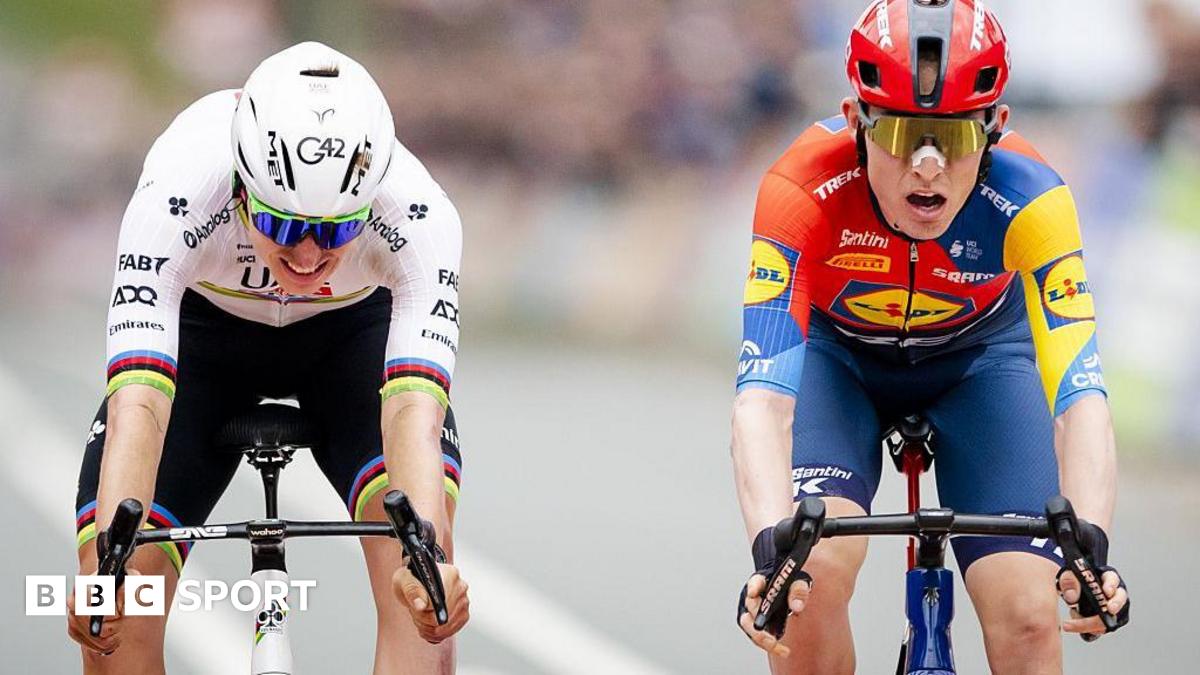Harry Brook says England’s decision to declare “absolutely” paid off after the tourists took three late New Zealand wickets on day one of the first Test.
In the day-night conditions, England declared on 325-9 in order to bowl with the pink ball under floodlights.
James Anderson took two wickets and Ollie Robinson one to reduce the hosts to 37-3 in Mount Maunganui.
“It’s the hardest time to bat. We wanted to bowl under lights and it panned out quite well,” said Brook.
Brook made 89 and Ben Duckett 84 after New Zealand won the toss and asked England to bat at the Bay Oval.
England declared when their ninth wicket fell after 58.2 overs, the second-earliest declaration in the first innings of a match in the 146-year history of Test cricket – the earliest was by Pakistan who reached 130-9 after 44.5 overs on a rain-hit opening day against England at Lord’s in 1974.
Robinson had Tom Latham caught at short leg, before Anderson trapped Kane Williamson leg before wicket on review and enticed Henry Nicholls into edging to second slip.
England might have had another wicket, but Zak Crawley, who caught Nicholls, dropped a straightforward chance at second slip when Devon Conway nicked Anderson.
“The plan was to wait until there were two of our bowlers batting together, give them a couple of overs, then have a crack at New Zealand tonight,” Brook told BBC Sport.
“The pitch changes quite a bit with the lights, there’s more pace of the surface and you can extract more swing and seam.
“We’d have liked one more wicket, but we’d have bitten your hand off for three.”
Similar declarations, designed to maximise the helpful bowling conditions late in the day, have been a regular feature of day-night Tests.
New Zealand pace bowler Neil Wagner, who took four wickets in England’s innings, said the Black Caps “expected” visiting captain Ben Stokes to declare.
“We knew they are going player a positive brand of cricket and they did. It’s quite exciting for Test cricket,” said Wagner.
“Everyone knows the pink ball is tough under lights and does a bit more. Conditions really got favourable for England towards the end.”
Brook, 23, is winning only his fifth Test cap, but arrived in New Zealand with three hundreds in as many matches during England’s 3-0 series win in Pakistan in December.
At the Bay Oval he fell 11 runs short of becoming only the second England batter to make four hundreds in as many Tests, a feat Ken Barrington achieved twice in the 1960s.
“I was thinking about that a little bit when I was out there, but I’d taken an 89 every day of the week,” said Brook.
Before September, Brook had won only four England caps, all in the T20 format. A freak injury to Jonny Bairstow, who broke his leg when falling on a golf course, let Brook in to make his Test debut against South Africa.
He has since been part of the England team that won the T20 World Cup, become the first England player to make three hundreds in his first four Tests and made his one-day international debut against South Africa in January.
“I felt good out there. My preparation has been key – it has been recently,” said Brook.
“I’ve always had that inner belief. You have to in any elite sport. Maybe not so much what I have done, but I always had the belief I could score runs in Test cricket.”




















